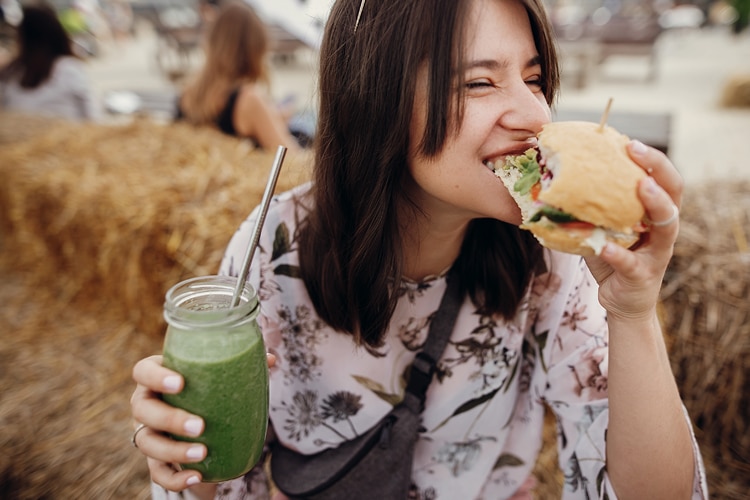15% off €25
Vegan

Vegan

Our top picks

Vegan Food & Drink
Next-level nutrition that's bursting with benefits

Teas & Hot Drinks
Elevate your day, one sip at a time
Image Carousel
Articles for you
FAQs
A vegan diet is 100% plant-based. Vegans can only eat food made from plants, which includes fruits, vegetables, legumes, nuts, seeds, bread, rice, pasta and vegetable oils.
Vegans can also consume dairy alternatives such as almond milk, oat milk or soy milk.
A vegan diet no longer needs to feel restrictive. There are lots of vegan alternatives available for all your favourite food as well as thousands of delicious vegan recipes.
A vegan diet is one that does not contain anything derived from an animal or anything that has been made by exploiting animals.
Vegans cannot eat red meat such as beef, pork and lamb, poultry, fish or shellfish, eggs, or dairy products. And because bees make honey, this is generally also avoided.
Don’t worry, you do not have to miss out on sweets if you are following a plant-based diet!
Traditionally, a lot of sweets have been made using animal fats, such as glycerine or gelatine, which is collagen taken from animal body parts.
Red sweets have also been made with cochineal, which is a food colouring made from crushed beetles.
However, there are plenty of alternatives available now which do not use animal products.
For example, you can get vegan marshmallows, vegan jelly sweets and even vegan chocolate!
Most bread is vegan as it is made with just flour, water, salt and yeast.
However, some bread may have additional ingredients such as sweeteners or fats, which may be derived from animals.
It is important that you check the ingredients in any bread that you buy, to ensure that is 100% plant-based.
Breads that are commonly vegan include sourdough, pitta, ciabatta and focaccia.
A raw vegan diet has become more popular in recent years and it combines a vegan diet with the principles of raw foodism.
Just like a vegan diet, raw veganism excludes all food which have come from animals.
On a raw vegan diet, all foods should be eaten completely raw or only heated to temperatures below 40-48 degrees Celsius.
Most people follow a raw vegan diet for health reasons, including weight loss.
Many people believe that raw and minimally heated foods contain more nutritious benefits than ones which have been cooked.
There are lots of sources of plant-based protein.
These include seitan and tofu, which can also be used in meals, as substitutes for meat, as well as lentils, beans, peas and chickpeas.
Vegans may find it more of a challenge to get all the protein that they need from their diet, since protein is mainly found in meat, fish and dairy products, especially if they do a lot of exercise and therefore need additional protein.
It is therefore important to carefully plan your meals as a vegan, to ensure that you are getting all the nutrients that your body needs to function.
If you feel that you need more protein than your diet provides, there are also vegan protein powders available to supplement your diet.
A vegan diet may not provide your body with all the vitamins and minerals that it needs to function healthily.
Therefore you may want to take some supplements alongside a balanced diet.
Vitamin B12 is important for lots of processes in the body, including the formation of red blood cells, supporting your immune function protein metabolism, amongst others.
Vegans can sometimes find it difficult to get the recommended daily amount of B12 as it is mainly found in meat, fish, milk, cheese and eggs.
Taking an additional supplement is therefore a good way of getting more B12.
Vegans may also take supplements for vitamin D, especially during the winter months, when we spend more time indoors and therefore do not get as much sunshine.










